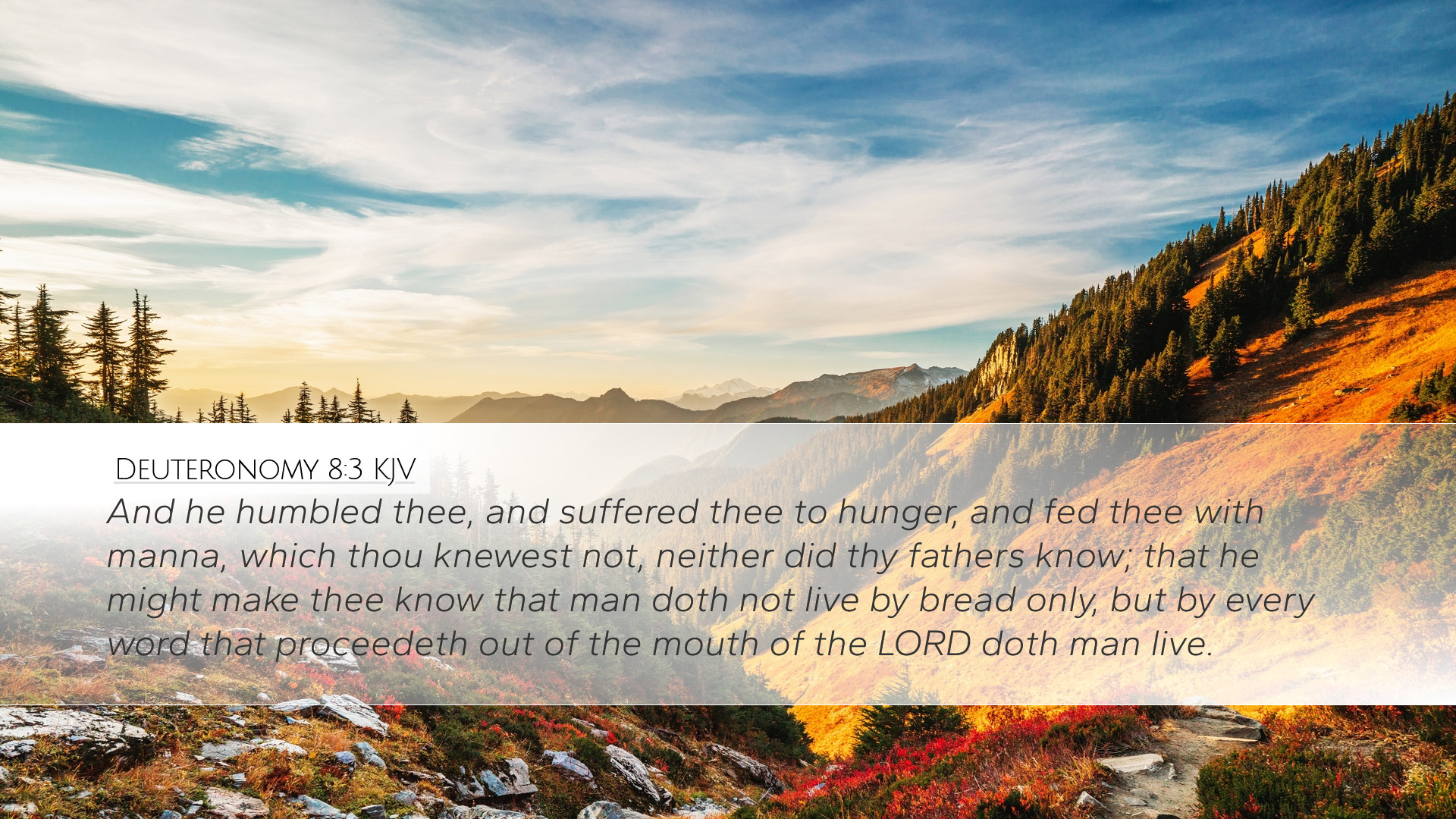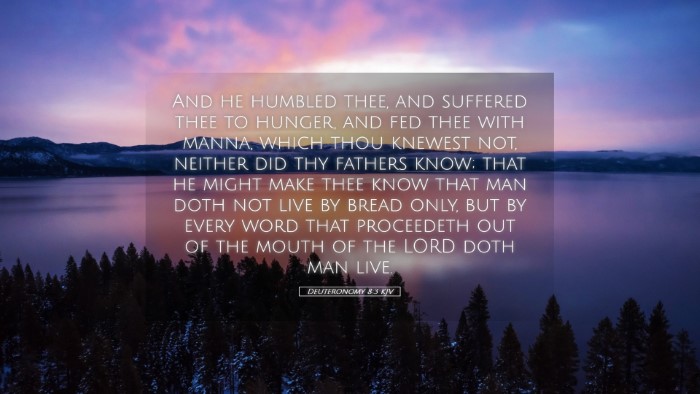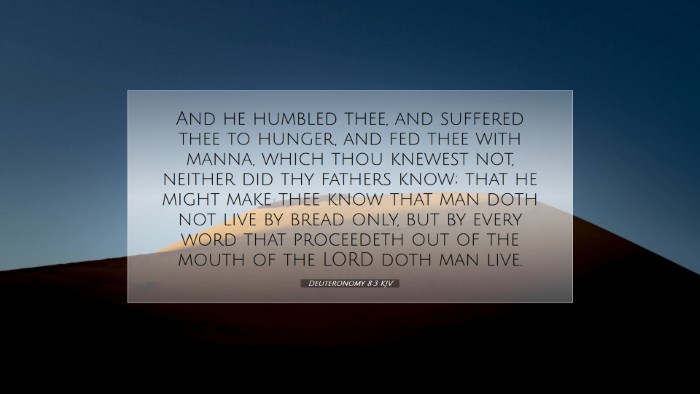Commentary on Deuteronomy 8:3
Verse: "And he humbled you, and suffered you to hunger, and fed you with manna, which you knew not, neither did your fathers know; that he might make you know that man doth not live by bread only, but by every word that proceedeth out of the mouth of the Lord doth man live."
Introduction
Deuteronomy 8:3 serves as a crucial teaching moment in the journey of the Israelites, highlighting God's providence and the spiritual sustenance provided by His Word. This verse encapsulates a profound lesson about humility, dependence on God, and the true essence of life beyond mere physical sustenance. The insights from historical commentaries such as those of Matthew Henry, Albert Barnes, and Adam Clarke will provide a deeper understanding for pastors, students, theologians, and Bible scholars.
Contextual Background
In the larger context of Deuteronomy, Moses is addressing the Israelites as they prepare to enter the Promised Land. This book serves as Moses' farewell address, wherein he reminds the people of their journey, the covenant with God, and the importance of obedience in order to enjoy God's blessings.
Moses’ Purpose in Reminder
According to Matthew Henry, Moses aims to remind the Israelites of their past experiences, particularly their dependence on God during their wilderness wanderings. This recollection is not merely for historical knowledge but serves to instill a lasting awareness of their need for divine support and guidance.
Exegesis of Key Phrases
- "He humbled you" - Albert Barnes emphasizes that humbling is a necessary process for growth in understanding and faith. The Israelites had to learn to humble themselves before God, acknowledging their weaknesses and their reliance on His strength.
- "Suffered you to hunger" - Adam Clarke points out that the experience of hunger was a divine strategy to draw the Israelites closer to God. In their need, they were compelled to seek after Him and recognize His ability to provide.
- "Fed you with manna" - Matthew Henry offers insight into the miraculous nature of manna. It signifies God’s provision amid scarcity and serves as a type of sustenance beyond mere physical nutrition, implying that God's gifts often surpass human understanding.
- "That he might make you know" - Albert Barnes notes that the ultimate purpose of these experiences was to teach the Israelites a profound spiritual truth: life is dependent not only on physical bread but also on the spiritual nourishment that comes from God’s Word.
- "Man doth not live by bread only" - Adam Clarke interprets this statement as a critical doctrine: the sustenance for the soul is as vital, if not more so, than that for the body. It urges believers to nourish their spirits through the teachings and promises of God.
Theological Reflections
This verse carries significant theological weight, illuminating key themes such as:
- Divine Providence: The Israelites’ journey through the wilderness serves as a testament to God’s faithfulness and provision in the face of physical challenges.
- The Necessity of Humility: It reminds us that true strength comes in recognizing our need for God, an essential posture in our walk of faith.
- Spiritual Nourishment: The emphasis on God's Word underscores its fundamental role in sustaining spiritual life, echoing New Testament teachings that affirm the importance of Scripture for growth and maturity in faith.
Application for Life and Ministry
For pastors and theologians, Deuteronomy 8:3 offers a rich source of application:
- Encouraging Dependency on God: Teach congregations about the significance of relying on God in times of need, reinforcing the importance of prayer, study of Scripture, and communal support in their spiritual journeys.
- Highlighting God's Faithfulness: Use this verse as a basis for sermons about God’s providential care, particularly during difficult seasons of life when external resources seem scarce.
- Promoting Spiritual Disciplines: Encourage the practice of spiritual disciplines that focus on feeding the spirit, such as meditation on God’s Word, regular Bible reading, and reflection on God’s promises.
- Fostering Spiritual Resilience: Remind followers that life’s struggles can produce growth and deeper reliance on God, shaping their character and faith in substantial ways.
Conclusion
Deuteronomy 8:3 serves as a timeless reminder of God's attentive care and the sustenance found in His Word. This verse continues to challenge and inspire believers to evaluate their dependence on God amid earthly provision, urging them to cultivate a rich spiritual life that acknowledges the supremacy of divine nourishment over mere physical existence. Insights from esteemed commentaries enrich our understanding, guiding us in teaching, preaching, and living a life that reflects the fullness of God's promises.


